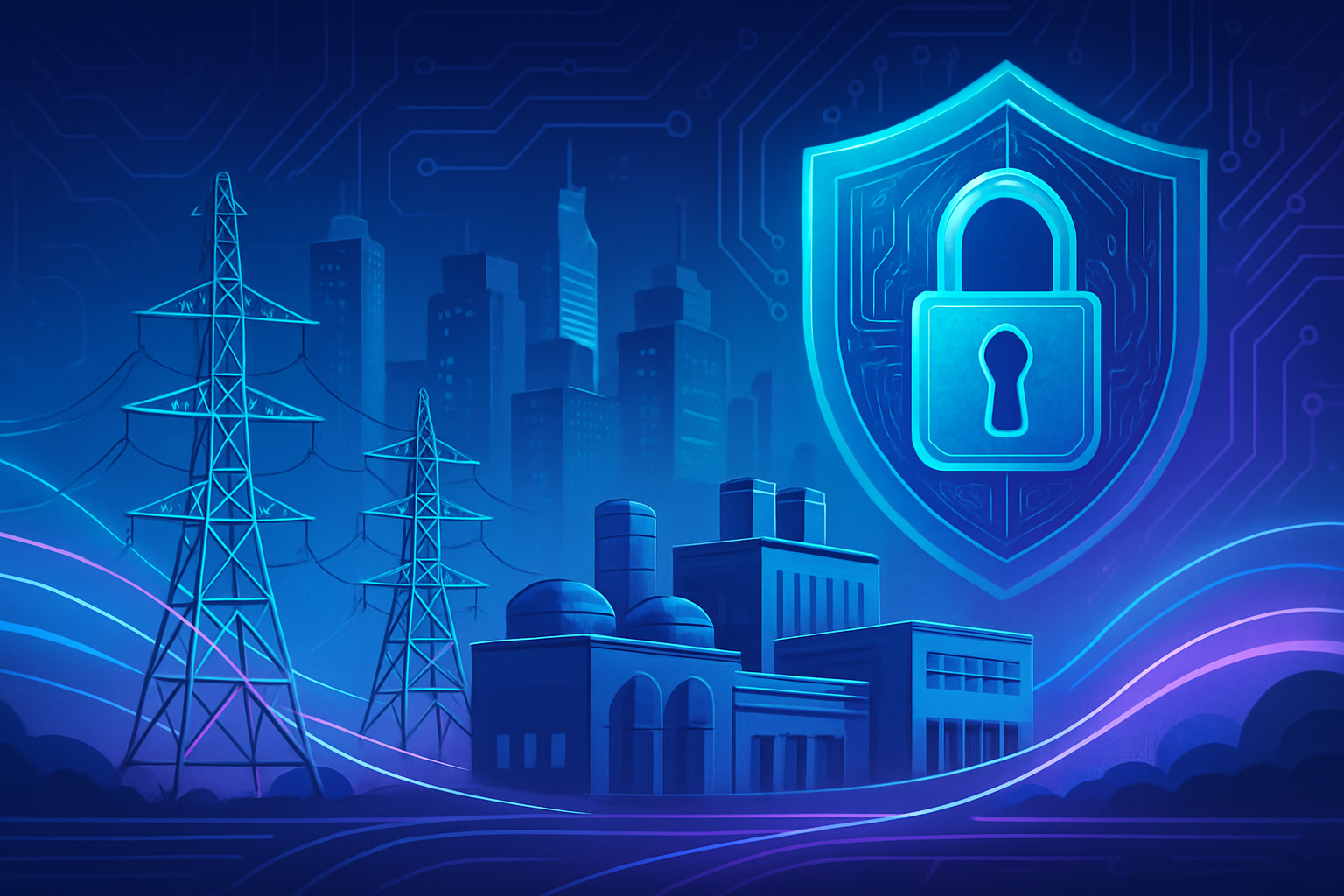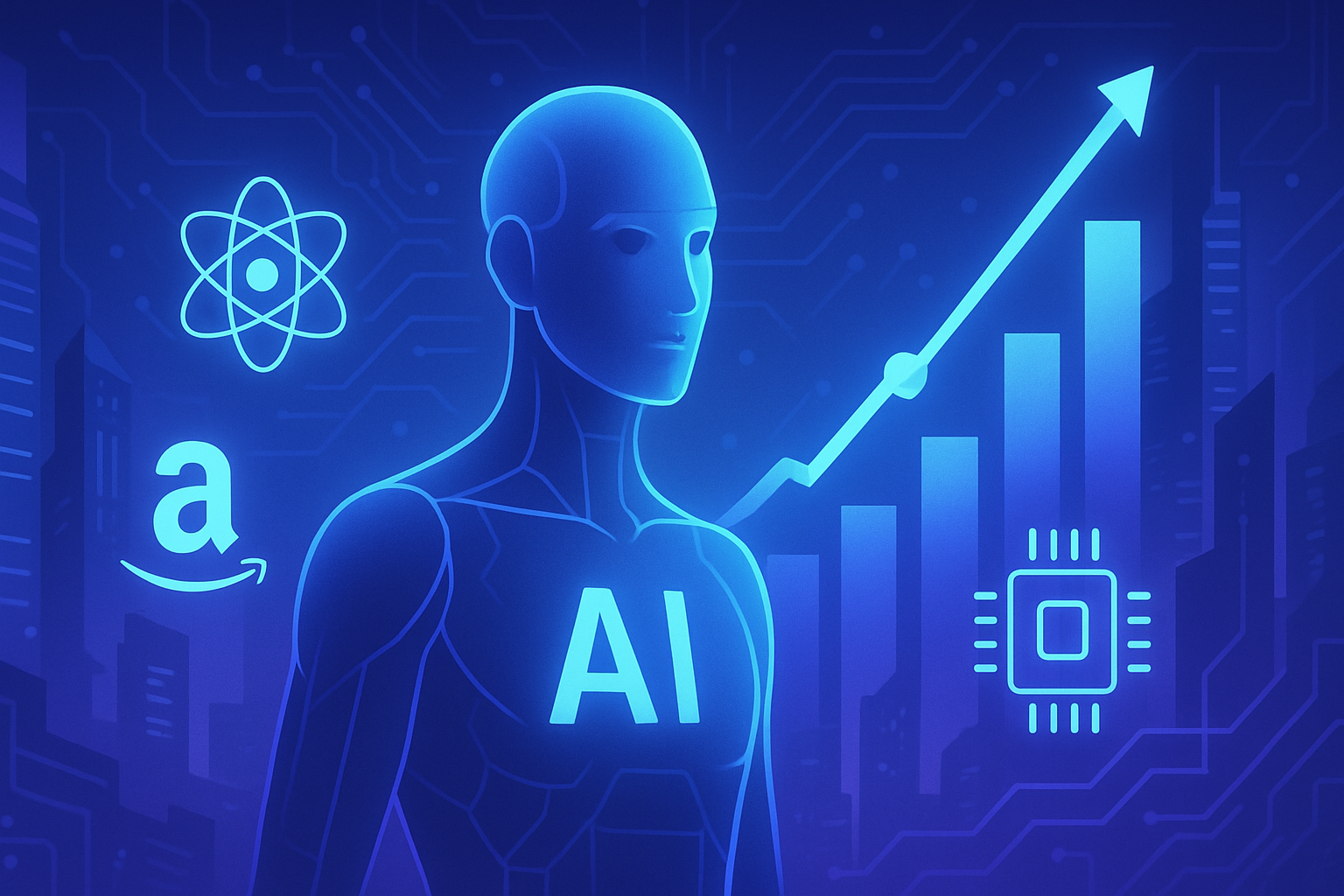*Electric grid security* is emerging as a strategic issue in a world increasingly dependent on artificial intelligence. In the face of growing energy technology, energy independence becomes imperative to ensure national sovereignty. While cybersecurity proves to be the keystone of the resilience of critical infrastructure, the link between these two topics is undeniably strong. *Without robust protection of energy systems*, the effectiveness of innovative energy sources is jeopardized. Advances in renewable energy must be accompanied by rigorous security strategies to confront new technological threats.
The challenges of the energy transition
The transition from an energy model centered around thermal power plants to distributed energy resources, such as solar parks and wind turbines, presents new security challenges. This evolution requires a redefinition of electrical infrastructures to integrate decentralized systems, thus increasing the complexity of managing and protecting electrical grids.
The impact of artificial intelligence
Advancements in artificial intelligence demand an ever-increasing amount of energy. Industry leaders, such as Frank Cilluffo, emphasize that this technological evolution is inseparable from an increased energy dependence. Dominance in the field of AI cannot be achieved without robustness in our energy production and distribution capabilities.
The economic and national security stakes
Energy infrastructures play a vital role in national security. Without a reliable electricity supply, other critical systems become obsolete. Cilluffo insists that the energy sector is the cornerstone of public safety and economic prosperity. Therefore, integrating cybersecurity solutions into the energy sector is a priority.
Emerging technologies in the energy sector
The energy landscape is rapidly evolving, with the emergence of promising technologies such as modular reactors, fusion, geothermal, and space solar energy. These innovations could revolutionize our approach to energy and offer viable alternatives, contributing to the diversification of energy sources necessary for energy security.
China’s energy dominance
China is on track to become the global leader in the energy sector, building renewable energy and energy storage projects. By 2025, it will represent a significant share of global energy capacity, thus influencing international economic dynamics. The United States must urgently step up efforts to remain competitive on this global stage.
The importance of cybersecurity
Cybersecurity is often underestimated, while it is a necessity for the protection of energy systems. Every actor in this chain must be aware of the risks associated with cybercrime. Adopting a culture of resilience and vigilance is essential to anticipate threats and protect critical infrastructures.
Investments and proactive strategy
Investments in cybersecurity should not be seen as secondary options. Developing a proactive approach to anticipate cyber threats is paramount. Security measures should not be viewed as reforms to be applied after an incident. Companies must include cybersecurity in their strategic planning.
A call for public-private collaboration
Collaborative initiatives between the public and private sectors are essential to strengthen the security of energy systems. Carrying out energy efficiency programs and sharing information on emerging threats promotes better protection against attacks.
Recent innovations to watch
To stay informed about the latest developments and innovations in the field of cybersecurity and the energy sector, resources such as this article or this one are worth checking out. They address current cyber security challenges, as well as the importance of APIs in system efficiency.
For those looking to deepen their knowledge, this article reveals how APIs can be assets in developing intelligent agents.
Vigilance against cyber threats must extend to everyone, as shown by this other article on spy devices in the energy sector. Simple actions can make a difference.
Finally, for those who wish to enrich their daily lives with AI tools, discover these extensions that add an extra layer of efficiency.
Frequently asked questions about electric grid security in the era of AI
What are the main threats to electric grid security today?
The main threats include cyberattacks, technical failures, and natural disasters, each jeopardizing the reliability of the electric grid.
How does artificial intelligence influence the security of energy networks?
AI enhances anomaly detection and response to intrusions, thereby strengthening the cybersecurity of critical infrastructures by anticipating potential attacks.
Why is energy independence crucial for the cybersecurity of electric grids?
Energy independence reduces dependence on external resources, minimizing vulnerabilities related to attacks targeting foreign energy suppliers or supply disruptions.
What roles do renewable energies play in enhancing the cybersecurity of electric grids?
Renewable energies, as decentralized resources, diversify energy sources, making the electric grid more resilient against cyberattacks and failures of critical infrastructures.
What measures should be taken to strengthen electric grid security in light of AI growth?
It is essential to invest in advanced cybersecurity technologies, improve employee training, and establish incident response protocols for adequate preparedness.
What are the implications of transitioning to a more distributed electric grid for cybersecurity?
The shift to a distributed grid increases the attack surface for cybercriminals, requiring a proactive approach to secure each access point and maintain overall grid resilience.
How can public-private partnerships benefit the cybersecurity of energy infrastructures?
Public-private partnerships promote sharing of knowledge, resources, and technologies, thereby enhancing infrastructure security and improving collective response to emerging threats.
What types of regulations can help secure electric grids in the era of AI?
Strict cybersecurity regulations, minimum security standards for critical software and equipment, and regular audits are necessary to protect electric grids.
How can companies raise employee awareness of cybersecurity for electric grids?
Regular training programs, awareness campaigns, and attack simulations can help educate employees on best practices in cybersecurity.






